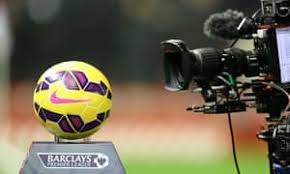By Paul Nicholson
October 13 – The radical ‘big picture’ plan led by Liverpool and Manchester United to restructure leagues, refinance the EFL and take voting control of the Premier League, and in effect the lower three tiers of England’s professional game, have met with mixtures of silence, anger and some optimism from clubs hunting for an immediate cash windfall.
The dialogue around the refinancing the English Football League (EFL) has gone from a discussion about football solidarity and protecting jobs, clubs and the professional football pyramid, to one of a blatant power and money grab by the ‘big-6’ of Arsenal, Chelsea, Tottenham Hotspur, Liverpool, and the two Manchester clubs.
Both English government and the English FA have expressed a distrust of the plan and its motives. Five of the six clubs have non-UK based owners.
UK secretary of state for digital, culture, media and sport Oliver Dowden has threatened to bring in a football governance review if the plan goes ahead. The FA has said that it would use its ‘golden share’ to veto any plan that transferred plan to the big clubs.
Under the proposals the agreement of six clubs of the ‘big six’ plus three special status clubs – West Ham, Southampton and Everton (the most long serving clubs in the Premier League) -would be needed to change rules and regulations. Currently each club in the Premier League has a single vote and 14 out 20 votes are required to pass motions.
Other proposals include a reduction of the Premier League to 18 teams and a restructuring of how TV income is distributed.
The pay off for the EFL is £250 million for its clubs to compensate for loss of match day revenue and a £100 million carrot to the FA.
The Times reports that at least two of the big six clubs have reservations about the plan, while a bulk of medium-sized and smaller Premier League clubs are against it. West Ham, one of the special status clubs, have also indicated that they are against it as the loss of two home games hits their revenue, while the opening up of the calendar for European game disproportionately benefits the ‘big 6’.
EFL chairman Rick Parry, one of the key architects behind the plan, says it provides the financial bail-out for covid-hit clubs, but more importantly provides “the need for a complete rethinking regarding the funding of English professional football (that) predates the Covid-19 crisis. This plan devised by our top clubs and the EFL puts an end to all of that.”
While some of his clubs, are desperate for the immediate £250 million cash share-out, they are not going to be so easily bought off, pointing out that long term it could prove to be a bad deal for them. 25% of TV revenue for the Premier League would flow to the EFL, but there is no guarantee on what that 25% looks like in what is a rapidly changing broadcast market and PPV platforms inevitably coming into the equation and which would stand outside the TV deal proposal.
Dowden told the BBC: “This deal does not command support through-out the Premier League at all. So, rather than doing backroom deals to try and reform football at this critical moment, I would rather they are working together to ensure the future of football.
“There are the resources there and I have to say that if the can’t get together and work together to sort this out we will have to return to what we promised in our manifesto, which is a fan-led review of football governance, because I think many fans will be concerned about what they are seeing.”
The threat here is that a fan-led review would likely have horrific consequences for the Premier League’s generally absent and ambivalent owners.
Parry playing his own game?
While the EFL’s Parry has been a key plank of support for the new proposals the Times has reported that the EFL has turned down a £375 million offer from US-based venture capitalists TPG Capital for a 20% stake in the league.
The offer would have solved the EFL club’s covid-cash crisis (it is looking for £250 million) but would have put in place a management team to handle TV and commercial rights across the three divisions.
That deal was rejected two days before Parry announced ‘Project Big Picture’ and is believed not to have been put in front of EFL club chairmen and women, but was discussed by the EFL’s executive.
Parry looks likely to face an uncomfortable governance ride when he next faces his clubs.
Contact the writer of this story at moc.l1745028314labto1745028314ofdlr1745028314owedi1745028314sni@n1745028314osloh1745028314cin.l1745028314uap1745028314

